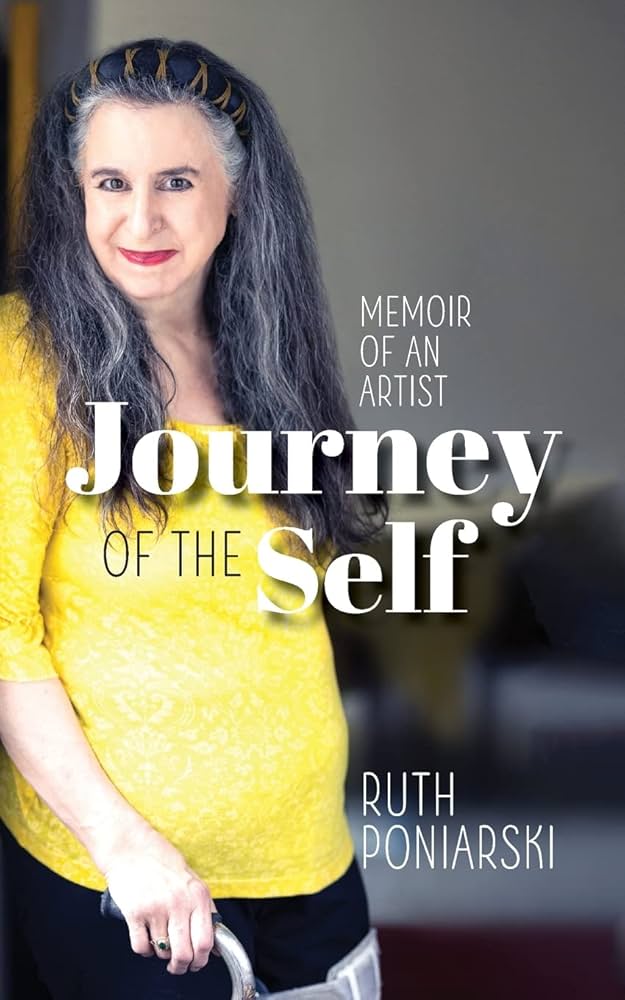JWK: When did you start becoming aware of concerns related to your mental health? What was the turning point that led you to decide to seek help?
RP: After ingesting PCP at a college party in 1977, I experienced a nervous breakdown. I was already compromised by smoking marijuana heavily in the fall of my sophomore year in 1975, which caused me to be anxious, passive, paranoid and depressed. An hour after consuming the PCP, I departed my male friend’s apartment. I got in my car and drove to the New York State Thruway, abandoned my car and walked twelve miles south on the shoulder of the highway, while being desperate, imagining that there was a bloody revolution taking place between the socialists and the capitalists, and my people were leaving the earth is spaceships. When the dawn arrived I hitched a ride back to the college town and to my apartment. I had to abort the college semester and return home with my father, when I had my first session with a psychiatrist.
JWK: Do you believe the ingestion of PCP was the direct cause of your illness?
RP: I have a very creative mind and at the time in 1977, I was experiencing low self-esteem, anxiety and depression: a residual state of mind and being caused by smoking marijuana in 1975. The PCP tipped me over the edge of rational thinking and a pattern of psychosis developed over time.
JWK: What has your treatment consisted of?
RP: Initially I was treated with therapy and an anti-psychotic medication,
Thorazine. The psychiatrist was not effective as he was truly Freudian and did not verbally offer insight and common sense in my unstable life, consisting of breaking down every six months to a year. Low self esteem, and feelings of inadequacy and being unacceptable plagued my tortured existence. The doctor caused a rift between my parents and myself, as he believed I should resolve my issues and be independent , which was isolating, for I was not open with my friends, in fear that they would not accept me, if they learned of my cyclic malady.
JWK: What happens in an episode?
RP: I am deeply distressed from a social situation. In 1984 I had a major league episode, spurred by participating in a psychological workshop which was confrontational and stress provoking. I hadn’t slept for seven days, imagining that my apartment neighbors were going to kill me. I had to escape, so I tied my bed sheets together to form a rope, and use it to rappel down a 30-foot exterior wall. As I climbed out of the window holding the rope, which was anchored to the kitchen table steel post, the force of gravity pulling me down was enormous. In seconds I planned my fall, to roll to my side when I impacted the pavement. I blacked out and became conscious in the hospital ER. I was hospitalized for two months, had twelve hours of surgery to mend my broken back and ankles, five months restricted to a wheelchair, not knowing if I would ever walk again.
JWK: What have you found that has worked well for you?
RP: Following my accident in 1984, I found the right psychiatrist, George. He was a Quaker and a veteran of WW2. He included my parents in therapy sessions, instilled hands on common sense, stressing the KISS principle: Keep It Simple Stupid, reducing the stimulas in my life. George shared essays that he wrote: how to eat properly, develop a sleep regimen, investing money, establishing positive relationships, and so forth. He was very optimistic that my life would improve giving me hope to move forward.
JWK: How did you change your life under the care of George?
RP: I made it a lot simpler. Until 1984, I pursued a stressful program in architecture, engaged (with) too many friends, moved to Manhattan at the same time commencing a new college that I transferred to, traveled to Europe alone, was employed in a male dominated field of construction with no mentor and direction. I was involved with too many activities and too many people. Under the care of George, I slowed down. He instructed me not to put ‘bunions’ (obstacles) in my head, and not obsess about 30 years in to the future and being abandoned in a war torn world, all of which created a pattern of irrational thought feeding my cyclic meltdowns, while experiencing extreme insomnia and paranoia.
JWK: How are things going for you now?
RP: In 1988 I turned to painting in lieu of architecture, as George suggested. Through this creative medium, I focused and channeled my imagination, incorporating facets of art history, literature, philosophy, myths, and daily culture into my surreal narratives. From 1987-2010 I experienced four major episodes and was hospitalized each time. A doctor in the hospital prescribed Zyprexa, an anti-psychotic, which improved my life tremendously.
JWK: What would you say to encourage others who are working on their journey of recovery?
RP: Writing my memoir Journey of the Self helped me to see my pattern of psychosis, looking at myself from a distance. I strongly recommend to fellow sufferers to keep a journal, strive to recognize one’s pattern , experiment until you find the right medicine and, if a therapist is not effective, then try another. Develop a support system and never give up.
JWK: Do you feel the PCP problem gets enough attention in the media?
RP: PCP, along with other mind altering drugs, are not emphasized enough in the media to educate the public, especially parents of vulnerable children in our cities across the U.S.
JWK: What’s next for you?
RP: I am writing a series of fiction novels as well as painting fine art. My work continually reflects all that I have learned from life’s experiences, especially adversity.



